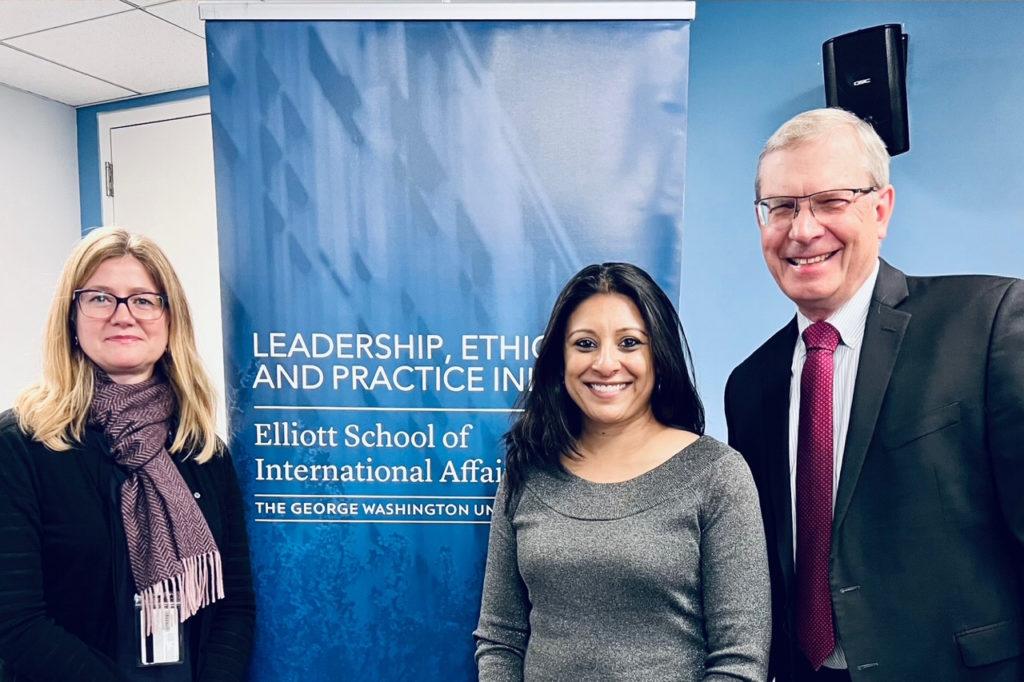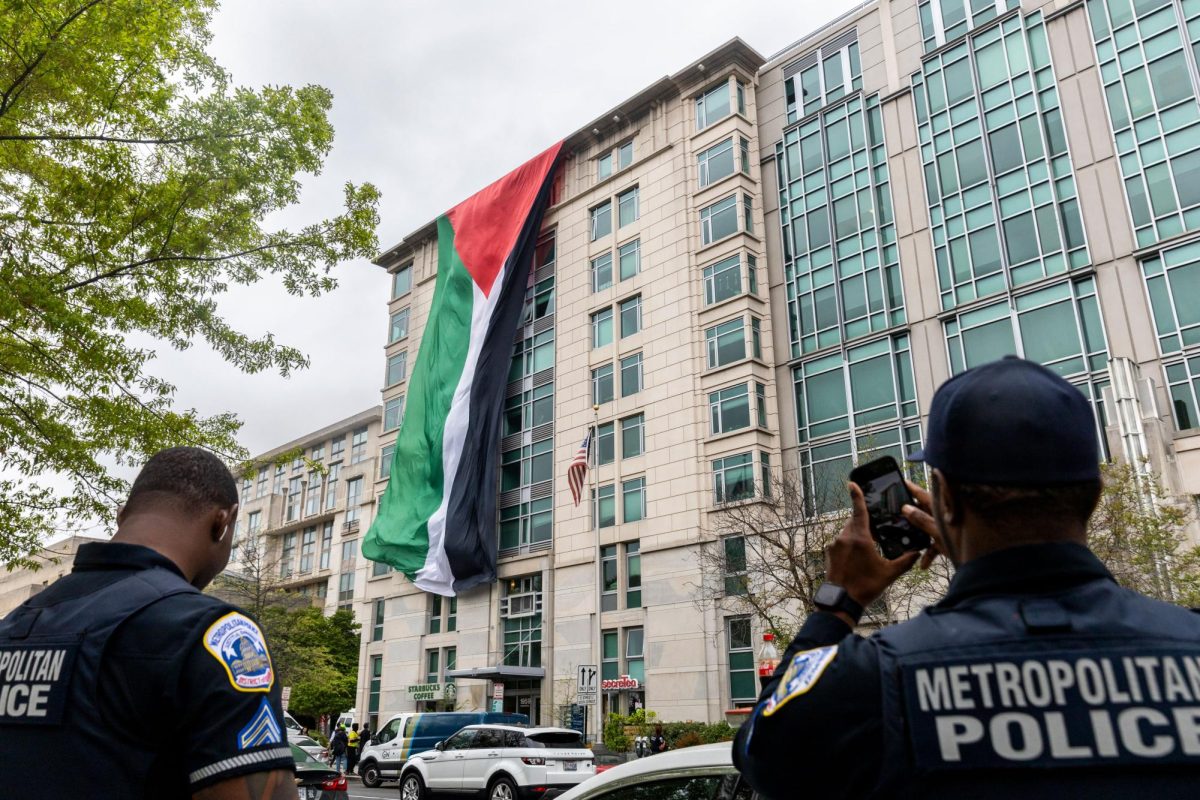A former State Department official detailed her experience working as a Muslim American and young mother at the Elliott School of International Affairs on Wednesday.
Fatema Sumar – the former deputy assistant secretary of state for South and Central Asia – said she experienced a working environment different than many in her industry as a first-generation immigrant working through the predominantly white institution of the United States government. About 150 people attended the event was hosted by the Elliott School’s Leadership, Ethics and Practice Initiative and moderated by Samantha Lee, a junior studying international affairs.
“I really struggled as a teenager to figure out what to do with a foot in so many different worlds.” she said at the event. “I had access to all of these culturally different communities but figuring out what to do with that was a real struggle.”
Sumar said she sought to answer the lessons no one told her about working in international relations when she was entering her career through her book, describing the boundaries of life as “silos.” She said many professionals – especially those who work as public servants – will follow different career paths than they originally intended because of new skills they pick up during their career.
“I started reflecting on what I wish I knew when I was 25 – on the silos that I think we’ve artificially created that actually go way back,” she said. “They go back to high school, to college, to grad school. They affect how we think about policy, foreign policy, national security, international development, oftentimes, they’re all artificial silos.”
Sumar said she worked in a wide range of positions like the deputy assistant secretary for South and Central Asia in the U.S. Department of State from 2013 to 2015, where she led United States’ efforts to expand regional economic and energy connectivity. She also served as senior professional staff member on the U.S. Senate Foreign Relations Committee, focusing on Afghanistan, Pakistan and the broader region of Central Asia from 2009 to 2013.
She said when she began he career as a presidential management fellow, her intentions were to remain in the executive branch but were eventually directed towards the legislative branch.
Sumar said her professors advised her to work in Congress to gain early experience in foreign policy. She said she never anticipated going into a sector of the government that was not based in or around foreign policy.
“I wasn’t interested in politics, I didn’t have a political background, my parents didn’t come from donor communities,” she said. “I didn’t have any ins on the Hill. But I remember I called him and he said, ‘Use your fellowship, make some phone calls and see if you can get a place on the Hill.’”
Sumar said her first experiences working in the government were “completely intimidating,” because she felt most unprepared for the inner workings of the organizations she had studied in school.
“What I felt really unprepared for was not the theory of how the world works, but how actually these organizations really worked and how to find my own place and voice within them,” she said. “I spent the first few years of my career not just figuring out foreign policy, but how the bureaucracy really worked.”
Sumar also said her experience as a Muslim-American working in post-9/11 Washington, D.C. was daunting and challenging because she was the sole Muslim-American in several staff rooms. She said racism and islamophobia was on the rise in professional environments, including in the federal government, and finding mentors or role models to help her through her early career path was difficult at the time.
“I was the only person on the senator staff or amongst Senate staff, more broadly speaking, that was Muslim-American – on the one hand, that was really hard, because you’re always different, right?” she said. “You’re visibly very, very different.”
Sumar said she also faced the demanding nature of motherhood, balancing her work and her three children – all under the age of five at one point.
“I remember thinking to myself at the time – I don’t know how I’m going to go back to the State Department and survive with all these young kids, because I’ve done State before and it was just really hard. It’s really, really hard to juggle motherhood over there.”








